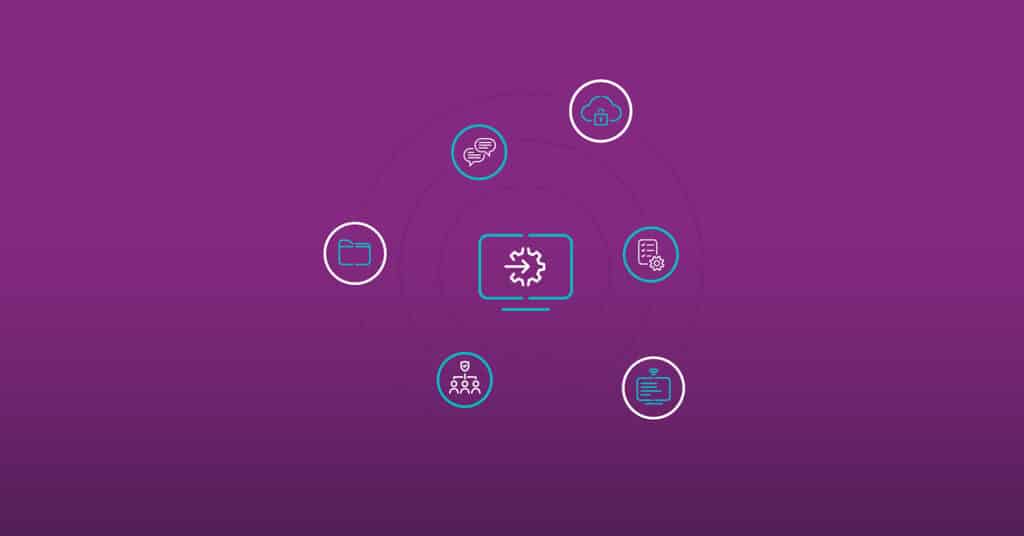The benefits of case management software are relatively well known in the legal industry. Firms have benefitted from technology focused on improving litigation processes since the introduction of first-generation solutions in the late 1990s. As with all technology, innovation in legal case management has grown exponentially since then. However, some legacy solutions simply haven’t been able to adapt to the rapid rate of change. And, despite the wide availability of cutting-edge solutions, many law firms still use outdated solutions that may put their litigation teams at a disadvantage.
Certainly, it’s no secret that law firms can be slow to embrace change and adopt new technology. The reasons behind the hesitation are understandable. Software is an investment, and a firm may have concerns about lawyer adoption, potential disruption to fee-earners, security risks, and overall value. At some point, law firms must overcome this inertia and explore the benefits of newer case management solutions.
This article will explore how the best legal case management software benefits lawyers and litigation teams. We’ll share insights about how leading law firms have upgraded to the latest technology to better serve their clients, prepare winning cases, and manage risk.
Use cases for modern case management software for law firms
Before we dig into the benefits of case management software for lawyers. We need to first clarify the kind of software we’ll be talking about because, over the years, the term case management software has been used to encompass many different processes and solutions.
For this post, we’ll focus on modern case management software designed to address a wide range of litigation processes. Legal case management software that falls into this definition empowers users to:
- Manage evidence and work product
- Store and analyze case-related documents and videos
- Build interconnected fact chronologies and case timelines
- Manage transcripts including deposition designations
- Create profiles for involved entities, witnesses, and characters
- Prepare electronic bundles for court
Certainly, some legacy platforms may have tools that can be used for case management, but they often lack the robust functionality, flexibility, ease of use, and seamless connectivity of more modern solutions.
Learn more here: Legal case management software guide
Why consider a new approach to case management now?
It’s a great time to consider upgrading to a new solution. The legal technology landscape has changed and grown significantly in the last decade, which means that it’s easier than ever to find the best legal case management software for your unique needs.
Legacy software companies that have historically offered their solution on-premise are now shifting to the cloud. They are encouraging their clients to make the change as well with the goal of phasing out localized technology. It presents a good opportunity for law firms to step back and take time to define their current and future needs, identify challenges, and explore new options that will enhance their case management approach.
Law firms are also facing ongoing pressure to reduce costs. Competition for new business is fierce, and clients expect your firm to take advantage of technology to manage their matters efficiently and effectively. They value ongoing innovation and are increasingly willing to buy into cost recovery for legal technology.
The 5 biggest benefits of legal case management software
Cutting-edge case management software improves efficiency, organization, and collaboration for your litigation team. Users benefit from regular enhancements and updates to the software giving them access to the latest technology without disrupting workflows. But there are other day-to-day and behind-the-scenes benefits to case management software.
1. Your entire case in one place
While various solutions for litigation have been around since the late 90s, comprehensive case management solutions are relatively new. Law firms that use legacy software often have disparate systems for each workflow within the case lifecycle. They may have one tool for chronologies and another for transcript management. Then they have a spreadsheet for tracking witnesses and various other manual processes for creating outlines and exhibits. The team managing the case must navigate these disparate systems to see progress updates, understand what is going on, and see what comes next. In addition, if you want to onboard a new team member, it may be days or weeks before they’ve been fully trained to use all the systems, follow the team’s processes, and understand the case itself.
One of the key benefits of modern case management software is that all these tasks can be done in one place. Equipped with linking capabilities and automations, lawyers and staff can eliminate time wasted logging into and clicking through separate systems to find information. For example, if one practitioner adds notations to a deposition, then those notes are instantly available for all team members to view and act on as needed. Teams can easily use that information to prepare for other depositions, add to a chronology, or mark the note for inclusion in designations.
With a comprehensive case management solution, notes won’t end up in a silo on someone’s hard drive. You won’t have to compare different versions of duplicated documents to see which one is the most recent. And, you won’t have to manually search through several systems to see underlying evidence.
2. User-friendly, customizable interfaces
Many legacy systems require extensive training, which leads to frustrated users and poor adoption rates. Legal practitioners are rarely able to devote the time needed to learn database management techniques or nuanced searching systems. As a result, software sits unused leading to more disjointed systems, inconsistent processes, and risky shadow IT.
Modern systems prioritize user-friendly interfaces that are intuitive to the way legal teams work. Users can jump right in, without significant training even with an out-of-the-box solution. The best case management software is highly adaptable to your law firm’s unique needs. The firm or individual teams can ask the software implementation team to adapt the interface to align with their current processes, reducing onboarding and training time.
Leading legal tech companies can also create case management templates for common use cases, different matter types, or even a partner’s specific preferences. Additionally, users can easily configure their own dashboards, reports, and displays so they always have exactly what they need.
3. Enhanced efficiency and better client experiences
As outlined earlier, there are a lot of ways that outdated systems can cause challenges. The most noticeable impact is on lawyer and staff productivity. Navigating multiple systems and dated user interfaces causes frustration for your team and increases costs for your clients.
Accordingly, a valuable benefit of a legal case management software upgrade is enhanced efficiency. Legal case management systems centralize case workflows, providing a structured framework for legal professionals to efficiently manage crucial dates and deadlines. These systems foster seamless collaboration, allowing teams to prioritize tasks effectively, thereby preventing any delay or oversight in critical actions. Users report substantial time savings, especially when dealing with intricate chronologies, overseeing deposition designations, and compiling document bundles.
In addition to the potential cost savings of improved efficiency, legal case management solutions can help deliver a better client experience. With customized client portals, your team can work seamlessly to gather and share documents, provide updates, share important dates, and more.
4. Cloud-based benefits
While many may offer a limited number of on-premise instances, the leading solutions for case management are native to the cloud. And it’s for good reason. On-premise software requires extensive resources for law firms to maintain and manage. Users may update their software at different times resulting in people on the same team using different versions of the software. This hampers collaboration and can lead to incompatible files or inaccessible work product. Updates must be individually vetted by the firm’s IT team for network compatibility and may require significant system downtime, which can interrupt time-sensitive case work.
Additionally, law firms face storage challenges with on-premise software. Duplicate files stored locally on different machines take up space and create challenges in tracking versions of files. Scaling on-premise software is difficult given the finite amount of space available, the expense, and the fluctuations in data storage required as your firm takes on and closes cases. Because older software does not keep track of active users or when a matter is still being worked on, it is difficult to know what to archive to gain more space.
Cloud-based legal case management software has a shared workspace that always has the most up-to-date version of documents. Not only that, but one of the biggest benefits of legal case management software is the ability to collaborate simultaneously and see updates in realtime. Additionally, law firms save on IT staff costs and hardware when system updates are available or the firm needs more storage space. Cloud-based solutions are infinitely scalable, but also easier to manage because administrators can see who is working on what matters to decide when a workspace can be archived.
5. Data protection improvements
Law firms must meet high standards for data protection based on the rules of professional conduct as well as consumer privacy laws. With confidential, privileged, and highly sensitive information, law firms must be responsible data stewards.
For on-premise solutions, the firm’s IT team is responsible for managing data security and complying with regulations. On the other hand, cloud-based case management software is designed with data security best practices in mind. Additionally, they must be proactive to maintain their security solutions, making them highly invested in protecting your data.
Newer user security features like single sign-on and multi-factor authentication are also available in leading cloud-based legal case management software. Whereas legacy software typically lacks options. Additionally, granular access permissions, ethical walls, and sharing controls in newer software make sure that information is not inadvertently shared with the wrong parties.
State-of-the-art systems make collaboration easy and cut down on manual work, have benefits for the IT team, are user-friendly, and include modern data protection measures. Given the investment law firms make in their technology, they should have all these benefits when choosing case management software.
For more tips on replacing legacy case management systems, download our three-step framework for evaluating legacy case management systems.
Rachel Bailey is the US Product Marketing Manager at Opus 2 where she uses her writing and storytelling background to help legal professionals understand the benefits of Opus 2 solutions. Previously, she worked as a legal data expert and data relations manager at Lex Machina. She is currently based out of New Orleans, Louisiana after spending several years practicing trademark law in the Bay Area. Rachel earned her JD from the University of San Francisco and a BSM from Tulane University.








